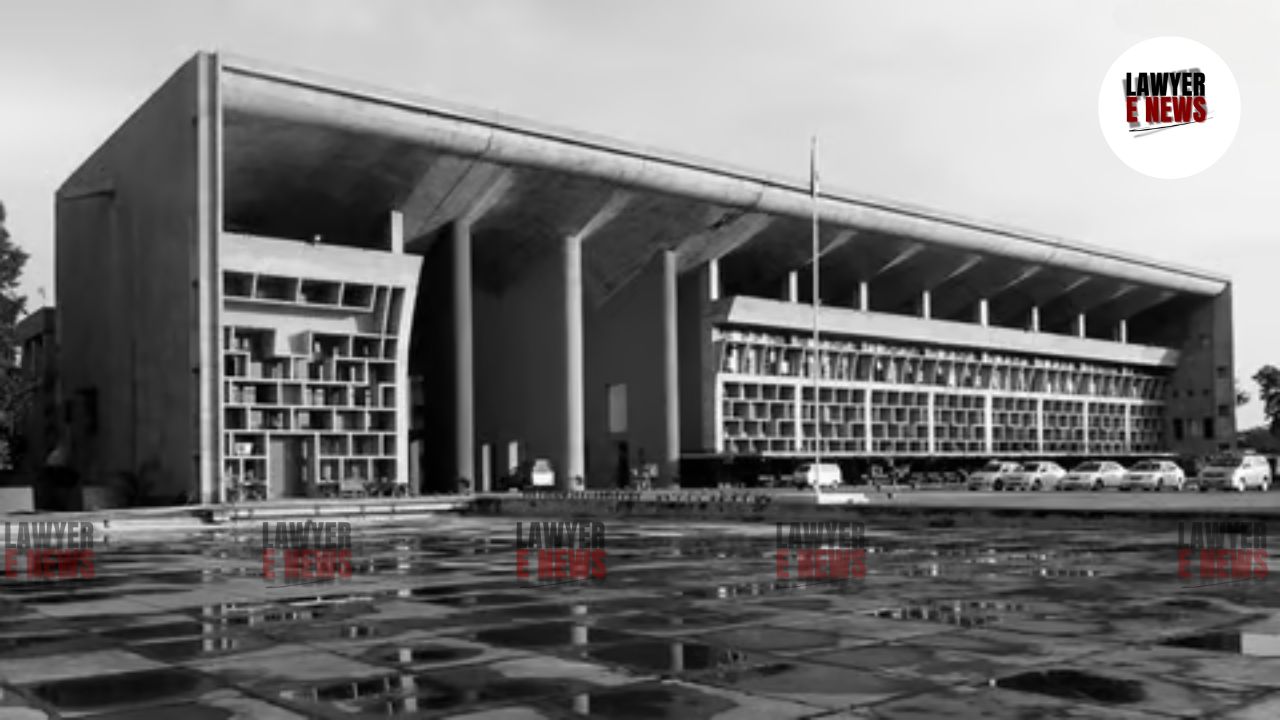-
by Admin
17 February 2026 2:34 PM



A Will Must Be Proved in Court, Not Presumed from Mutation - Punjab and Haryana High Court delivered a significant ruling that a Will cannot be treated as proved merely because it was used to obtain mutation. The Court allowed the second appeal of the plaintiff and decreed his 1/6th share in ancestral property, holding that the Will propounded by the defendants had not been proved in accordance with law.
Justice Deepak Gupta, setting aside concurrent findings of both the trial and first appellate courts, declared: “Section 71 of the Evidence Act cannot be read to liberally allow a party to bypass mandatory requirements under Section 68 and Section 63 merely because the attesting witness is inconvenient.”
“Original Will Not Produced, Attesting Witness Not Examined—Defendants Failed Basic Legal Test”
The dispute revolved around 27 kanal 12 marla of land, originally owned by Puran Singh, who died unmarried and issueless. The plaintiff, Prem Singh, claimed 1/6th share as one of six heirs of Puran Singh’s mother. The defendants denied this, citing a Will dated 15.02.1980, allegedly executed by Puran Singh in favour of Ajmer Singh and others.
However, the High Court found multiple fatal legal flaws in the defendants' attempt to prove the Will:
The original Will was not produced in court.
No attesting witness was examined, although Gurdev, one such witness, was alive and available.
The defendants only examined Prem Singh, the scribe of the Will, not an attesting witness.
The Court ruled: “Scribe Prem Singh cannot be treated as an attesting witness when he has not deposed so in his testimony, and his name is shown as ‘likhne wala’, not as a witness.”
“Section 71 Is a Safeguard, Not a Shortcut”: Strong Reaffirmation of Evidentiary Principles
Relying on the Supreme Court’s judgment in Janki Narayan Bhoir v. Narayan Namdeo Kadam, the Court explained: “Section 71 is meant to come to the rescue of a party who has done his best. It cannot be read so as to absolve a party of obligation under Section 68 read with Section 63 and confer a premium upon deliberate omission to summon attesting witnesses.”
The Bench found that no steps were taken to summon Gurdev, the available attesting witness. His alleged bias against the defendants did not justify omitting him from the witness stand.
Citing Ram Ratan Misra v. Bittan Kaur, the Court reinforced: “If the attesting witness has not been examined due to fear that he may not support the Will, there is a failure to prove execution under Section 68. Section 71 cannot be invoked in such cases.”
“Mutation Entry Is Not Proof of Testamentary Execution—Probate Standards Apply”
The Will was used to obtain mutation of inheritance (mutation no. 204 dated 01.04.1980), which the defendants relied on to support their case. But the Court clarified: “Sanctioning of mutation may reflect the existence of a Will but not its legal validity or due execution under the Indian Succession Act.”
The original Will was reportedly taken away by Ajmer Singh (since deceased), and no effective effort was made to trace it or summon revenue officials with custody of the document.
Concurrent Findings Are Perverse If Built on Ignorance of Law
Rejecting the argument that it should not interfere with concurrent factual findings, the Court held: “High Court has limited scope to interfere in second appeal—but when findings are based on misappreciation of legal principles or ignorance of mandatory statutory provisions, interference is not only permitted but necessary.”
The ruling cited Gurbachan Singh v. Gurcharan Singh [2023 SCC OnLine SC 875] and Easwari v. Parvathi [(2014) AIR SCW 4406] to emphasize that misapplication of law justifies reversal of concurrent findings.
Will Held Unproved, Plaintiff Granted 1/6th Share by Natural Succession
Concluding its analysis, the Court declared: “Will dated 15.02.1980 (Ex.DW2/A) is not proved in accordance with law. Plaintiff is entitled to 1/6th share in the suit property on the basis of natural succession.”
It further granted a decree of possession in favour of the plaintiff to the extent of his share.
This ruling is a textbook affirmation of evidentiary rigour in probate litigation. The High Court's meticulous examination of statutory provisions—Section 63 of the Succession Act, Sections 68–71 of the Evidence Act—and its rejection of shortcuts to testamentary proof, restores faith in procedural integrity. It sends a strong message: “He who asserts a Will must prove it by law—not by convenience.”
Date of Decision: 10 March 2025
